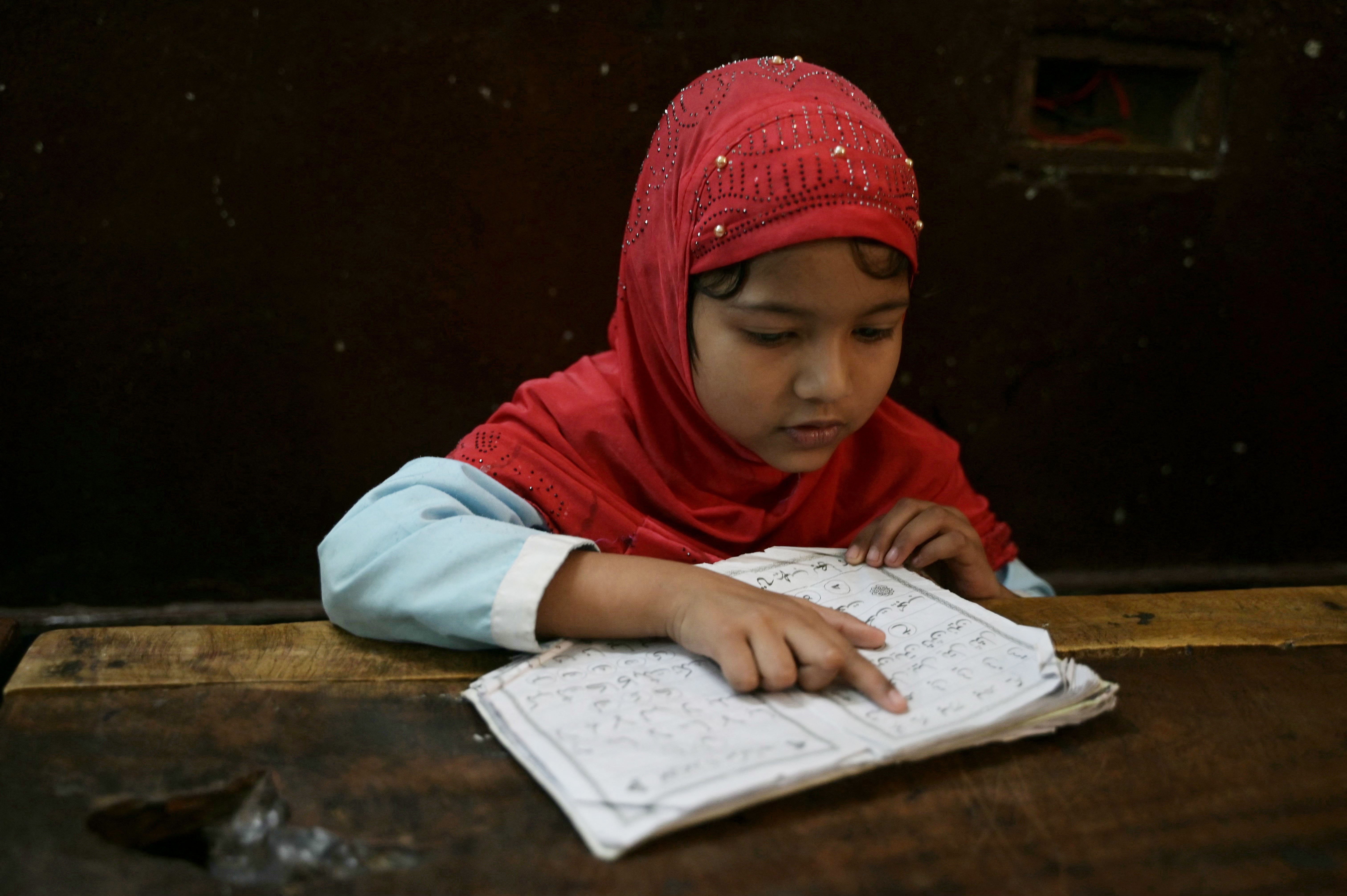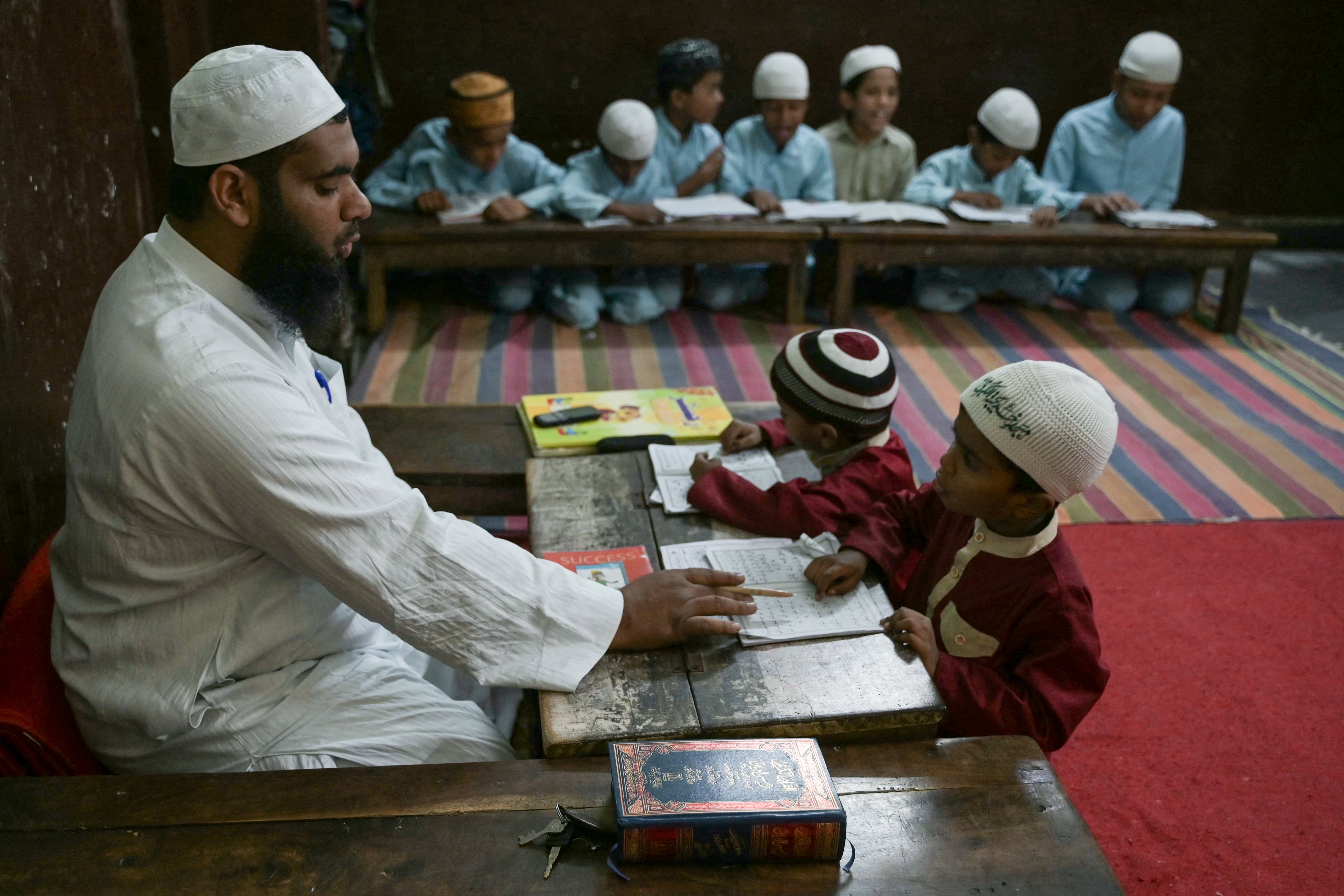India’s top court puts on hold order banning Islamic schools in most populous state
Decision by lower court would have dislodged 2.7 million students dependent on Islamic schools for education in Uttar Pradesh

Your support helps us to tell the story
From reproductive rights to climate change to Big Tech, The Independent is on the ground when the story is developing. Whether it's investigating the financials of Elon Musk's pro-Trump PAC or producing our latest documentary, 'The A Word', which shines a light on the American women fighting for reproductive rights, we know how important it is to parse out the facts from the messaging.
At such a critical moment in US history, we need reporters on the ground. Your donation allows us to keep sending journalists to speak to both sides of the story.
The Independent is trusted by Americans across the entire political spectrum. And unlike many other quality news outlets, we choose not to lock Americans out of our reporting and analysis with paywalls. We believe quality journalism should be available to everyone, paid for by those who can afford it.
Your support makes all the difference.India’s Supreme Court has put on hold a lower court’s order banning Islamic schools in the most populous state of Uttar Pradesh, in a major relief to thousands of students dependent on the system.
The stay on the order issued last week by the Allahabad High Court in Uttar Pradesh has come as a win for the Islamic school board of Uttar Pradesh after it was challenged in the apex court.
“We are of the view that the issues raised in the petitions merit closer reflection,” the Supreme Court said on Friday, news portal Live Law reported.
The case will be reviewed in July, and “everything will remain stayed” until then, lawyers said.
The ban on Islamic schools, known as madrasas, was seen as an attack on the largest minority in the country and could have led to calls for prohibition of Islamic schools in other states as well.
The schools, part of Indian states with Muslim populations for decades, are centred around Islamic ways of schooling whereas other schools in India follow conventional education.
The Allahabad High Court in Uttar Pradesh on 22 March scrapped a 2004 law governing madrasas, declaring it “unconstitutional” on the ground that it violates “the principle of secularism”.
The court had also directed that pupils at these institutions be moved to conventional schools.

The controversial decision came days before the country began voting in a national election where prime minister Narendra Modi and his Hindu nationalist Bharatiya Janata Party (BJP) are seeking a third term.
The multiphase elections in India would be the biggest the world has seen with an estimated 960 million eligible voters.
This move would have dislodged 2.7 million students and around 10,000 teachers across 25,000 Islamic schools in the most populous state of India which has one-fifth of the 240 million population as Muslim.
The court will hear the case in July, a month after the election process concludes in June.
Iftikhar Ahmed Javed, head of the board of madrasa education in Uttar Pradesh state, welcomed the court’s order, terming it a “big win”.
“We were really worried regarding the future of about 16 lakh (1.6 million) students and now this order has come as a big relief for all of us,” he said.
Mr Modi and his BJP party which has been in power for 10 years now have been repeatedly hit with allegations of discrimination against minorities and fuelling anti-Islamic hate speech and vigilantism.
Mr Modi, however, has denied that discrimination against minorities exists under his government, and said it is a democracy which is working for the betterment of all.
Join our commenting forum
Join thought-provoking conversations, follow other Independent readers and see their replies
Comments